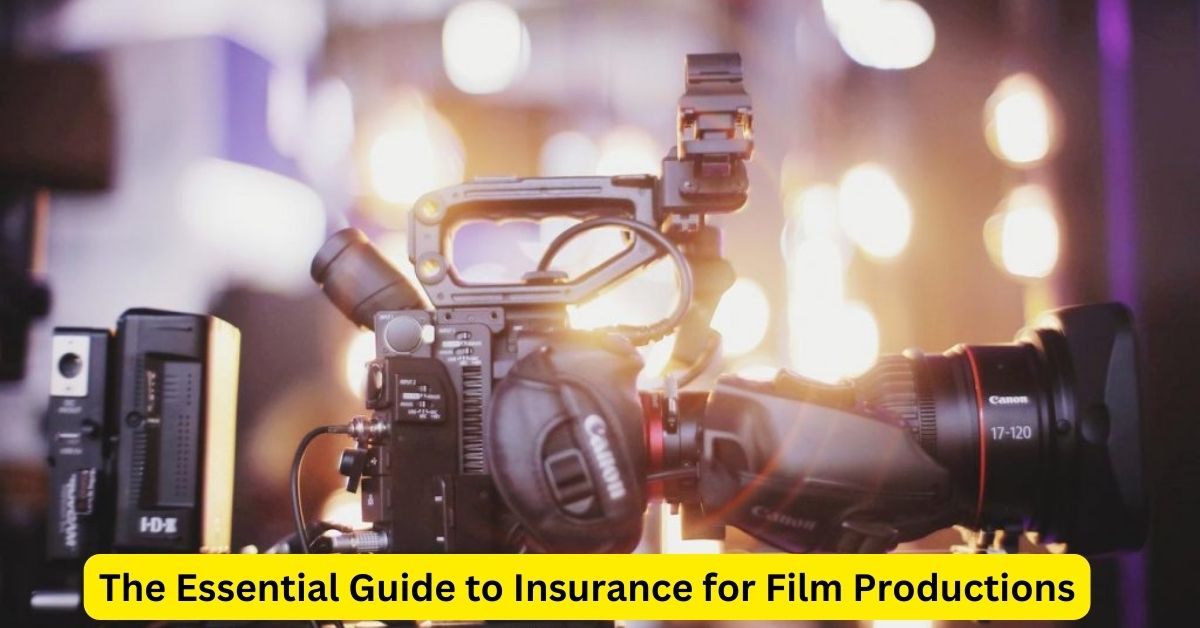In the world of film production, creativity and risk go hand in hand. Whether it’s a blockbuster movie or an independent film, the production process involves significant investments, complex logistics, and countless unpredictable elements. From equipment damage to on-set accidents, the potential for setbacks is ever-present. That’s why comprehensive insurance coverage is vital to safeguard film productions against financial loss and ensure a smooth creative process. Here’s a guide to the essential types of insurance every film production should consider.
1. General Liability Insurance
General liability insurance is a cornerstone of any film production’s risk management strategy. This coverage protects against claims of bodily injury and property damage that might occur during the production process. Film sets are bustling environments where accidents can happen, such as a crew member tripping over cables or a lighting fixture falling and causing damage.
With general liability insurance, production companies can cover legal fees, medical expenses, and property repairs or replacements, ensuring that an unforeseen incident doesn’t derail the entire production. This coverage is crucial for protecting the production company’s financial assets and reputation.
2. Cast Insurance
Cast insurance is essential for productions relying heavily on specific actors or performers. Illness, injury, or unforeseen circumstances affecting key cast members can lead to costly delays or even halt the production altogether. Cast insurance provides financial protection by covering additional expenses incurred due to interruptions or recasting costs.
This type of insurance ensures that the production can continue without suffering substantial financial losses if a key actor becomes unavailable, allowing filmmakers to stay on schedule and budget while minimizing disruptions.
3. Equipment Insurance
Film productions require a wide array of expensive equipment, from cameras and lenses to lighting and sound gear. Equipment insurance protects against loss, theft, or damage to this vital gear, whether it occurs on set, during transit, or in storage.
With the high costs associated with repairing or replacing equipment, having this coverage is indispensable. Equipment insurance ensures that filmmakers can quickly recover from any setbacks and keep the production moving forward without significant downtime or additional expenses.
4. Errors and Omissions Insurance
Errors and omissions (E&O) insurance is critical for protecting film productions from legal claims related to intellectual property infringement, defamation, and invasion of privacy. This coverage is particularly important in the post-production phase, where content might inadvertently breach copyright laws or misrepresent individuals.
E&O insurance safeguards the production company against potential lawsuits by covering legal defense costs and any settlements. It’s an essential component for ensuring the film can be distributed without legal entanglements, allowing filmmakers to focus on creative expression without fear of costly legal battles.
5. Workers’ Compensation Insurance
Workers’ compensation insurance is a legal requirement for film productions employing cast and crew. This coverage provides medical benefits and wage replacement to employees who sustain injuries on the job, such as during stunts or set construction.
By investing in workers’ compensation insurance, production companies demonstrate their commitment to crew safety and comply with labor laws, ensuring a safe working environment that attracts top talent.
Conclusion
In conclusion, comprehensive insurance coverage is indispensable for safeguarding film productions from the myriad risks they face. By investing in general liability, cast, equipment, errors and omissions, and workers’ compensation insurance, filmmakers can protect their projects from unforeseen setbacks and ensure a successful production process. Collaborating with insurance professionals who understand the unique needs of the film industry is key to crafting a tailored insurance plan that supports the creative vision while mitigating financial risks. With the right coverage in place, film productions can focus on what truly matters: bringing stories to life on the big screen.

